The Enlightened Woman
Women's effect on the philosophical revolution of Enlightenment Europe.
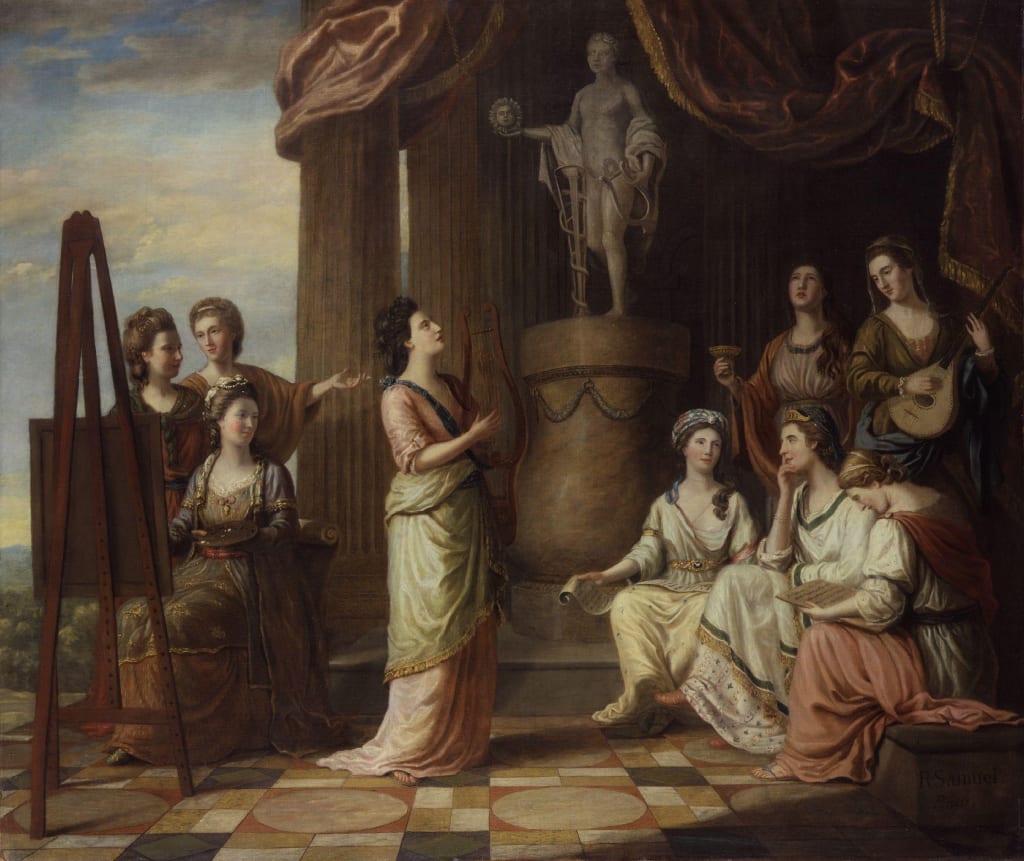
Over the last year, I've been upgrading some high school courses in order to bolster my university applications (29 year old, going to post-secondary for the first time here! Woohoo!). One of the courses I'm taking is World History, which has been extremely insightful considering the global events that have transpired since March 2020. Recently, I had the opportunity to select a topic of my choice for an essay. There was a list of suggestions I could pick from, or I could present an idea of my own. On the list I saw two intriguing topics right next to each-other:
Choose an important philosopher from the time period. What impact did his/her philosophy have?
Life for women in Enlightenment Europe – continuity and change.
I felt really inspired to dive into both of these ideas and as I sat there staring at the two trying to choose, I found myself caught on the words:
What impact did his/her philosophy have?
Hang on a minute. Had I learned about any female philosophers? I hadn't. I knew that it would take some extra research, considering my curriculum had not covered any female philosophers, but I had settled on my topic:
What effect did women have on the philosophical and scientific revolution of Europe?
When you think about notable philosophers or academics of Enlightenment Era Europe, you likely don’t think of female examples. It is true that during this era, women were still widely oppressed and tied to the duties that were prescribed by society to the feminine sex, however that doesn't mean that women didn’t have their place in the discoveries made during Enlightenment Europe.
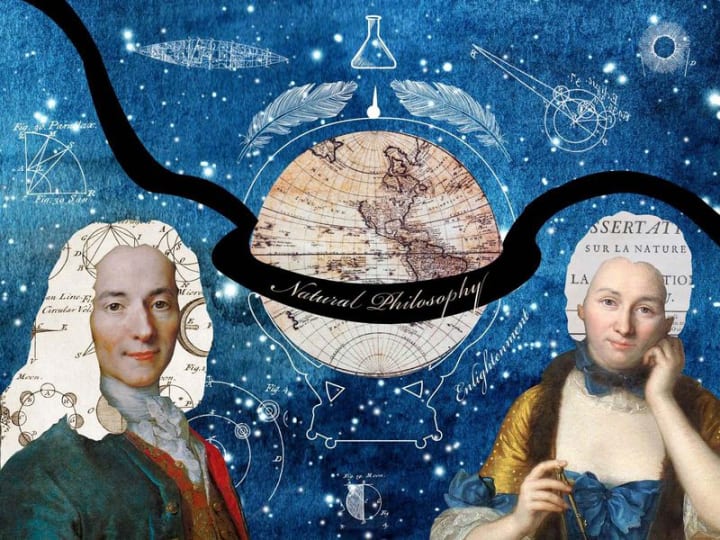
If you consider that there were hundreds of thousands of students of science and philosophy during this period, in addition to the fact that we only remember a select few of them, we will see that women actually make up a significant portion of those who are remembered. We may not learn about them in public school courses and the reason for that, is an entire topic of its own, but the women of the enlightenment era certainly had a strong effect on the academic revolution in a large variety of ways; some studied mostly from behind closed doors on family estates, some were inspirations and teachers to their more famous male counterparts and some were prominent figures in society.
To understand the effect that women had on the academic and philosophical revolution, the cornerstone values that brought forth and fuelled the Age of Enlightenment must be understood. This time period centred around a revolution of knowledge and personal freedom. Thanks to the invention of the movable type printing press in the 15th century, information was being shared exponentially faster and wider than ever before.
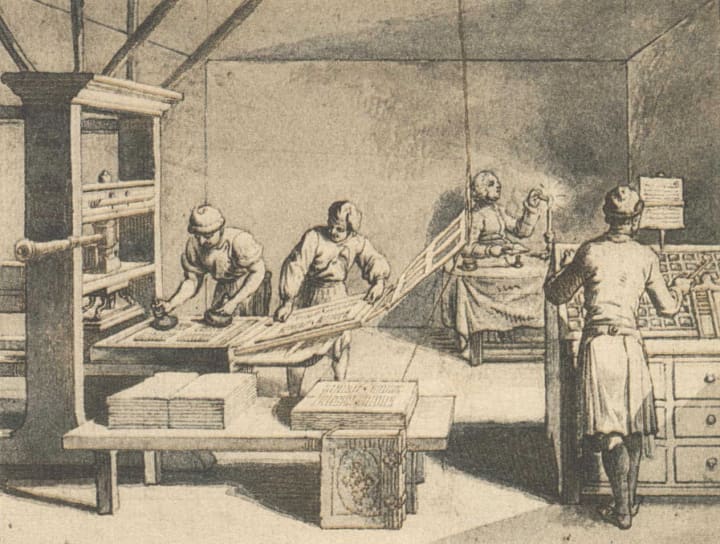
Academics and philosophers that had new access to important scientific and religious texts, were able to interpret these sources for themselves, and more importantly, they were able to publish their findings and opinions. The Age of Enlightenment was the beginning of free speech and separation from church. Though at the time, the creation of new ideas was still dangerous, and even more so if you were a woman.
Philosophers were the human rights activists of their time. They were the individuals who reflected upon human nature, personal values, the current state of society and how it might be improved. Numerous female philosophers turned their attention to the topic of women’s education. Formal education was not offered to women, they were barred from nearly all colleges and universities up until the mid 19th century. The early female academics fought for change on this issue.
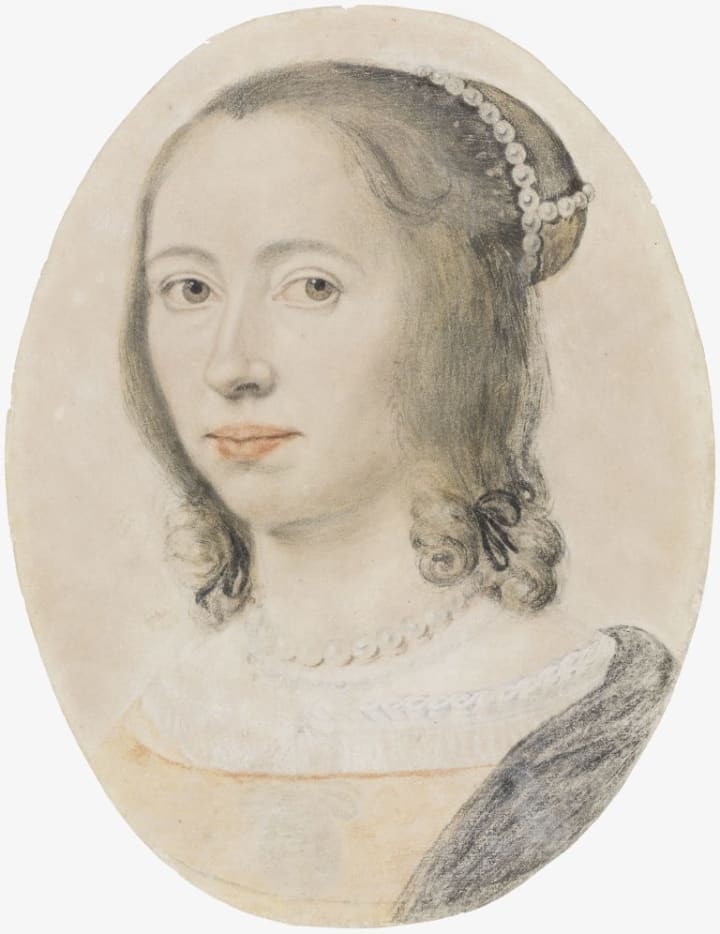
One such woman was Ann Maria van Schurman, a linguistically gifted Dutch academic. She had outperformed her male siblings in the studies of latin, as well as learned over a dozen classical languages at a very young age, this fact quickly spread amongst her home town of Utretch.
When Utretch University was opened in 1636, Anna Maria was invited to perform a poem in latin. The poem that she penned and recited, directly addressed the lack of women’s education. It was well received and reprinted in several publications, after-which, van Schurman requested women also be admitted to the university. Her request was denied but admission was granted for Van Schurman herself, who was allowed to attend lectures behind a screen, so as not to distract the male students (give me a break)! She became the first female university student in Northern Europe. Despite the resistance she faced from her male counterparts, Anna Maria continued to advocate for women's education and even published a dissertation on the matter published in Latin Dissertatio, English The Learned Maid and French Question celebre.
Van Schurman's poem performed at Utretch University.
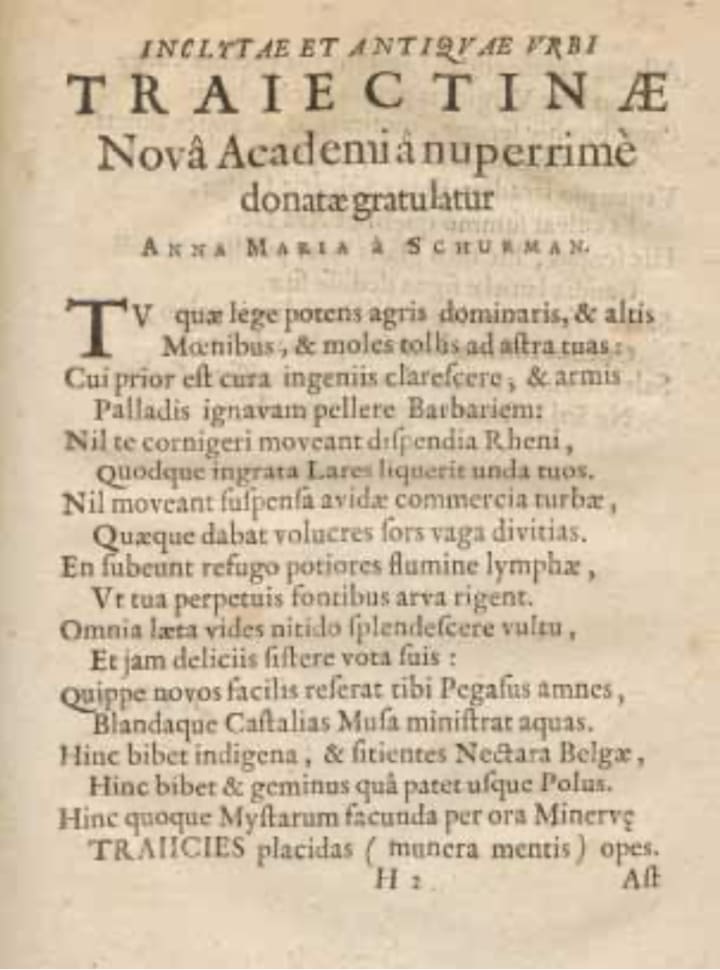
A section of Anna Van Schurman's poem translated to English:
But, you may ask, what is bothering you? Well, these sacred halls are inaccessible to women! For everyone, they sow and harvest here so that the peace-loving and nourishing Themis may exclude the discordant Chaos from the world, and divine knowledge may radiate with suitable adoration and an altar for the highest God may burn everywhere. This is my goal, here I conclude; it is sufficient that I gave signs of joy in the midst of the world’s celebrations.
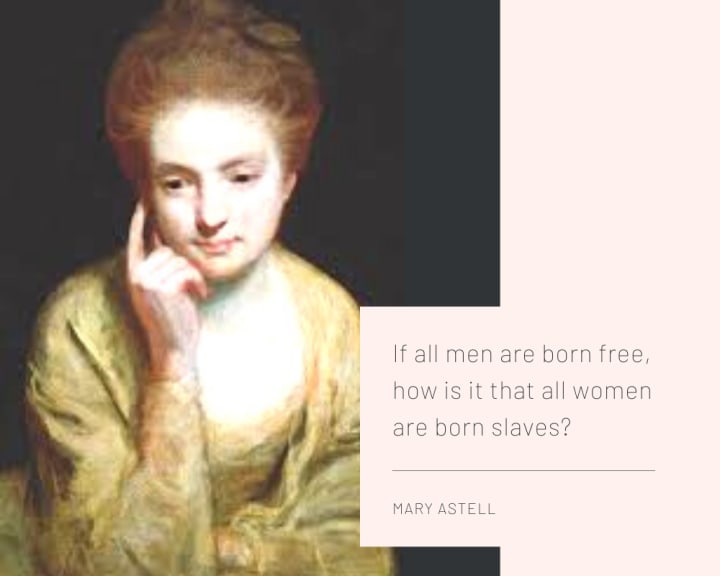
Mary Astell, carried on the work started by van Schurman. The English born Astell, was a mostly self-educated woman who fought for women’s rights. She published literature on female issues, from marital duties to women’s role within the church. Astell was a particularly staunch supporter of women’s education and had developed plans for a women’s college.
Many consider Astell to be the first feminist in England, paving the way for the women’s right movement. Some of her most famous publications A Serious Proposal to the Ladies and Some Reflections Upon Marriage are known to be amongst the reading material for the ladies of the Blue Stocking Society, which was a social group dedicated to discussing and sharing academic knowledge between learned women (and some men). A Serious Proposal to the Ladies and Some Reflections Upon Marriage, can no doubt be classified as early feminist publications. In which, Astell fights for basic intellectual equality between men and women. Her work impacted many, for decades after her death and build a solid foundation for women's suffrage of the 19th and 20th centuries.
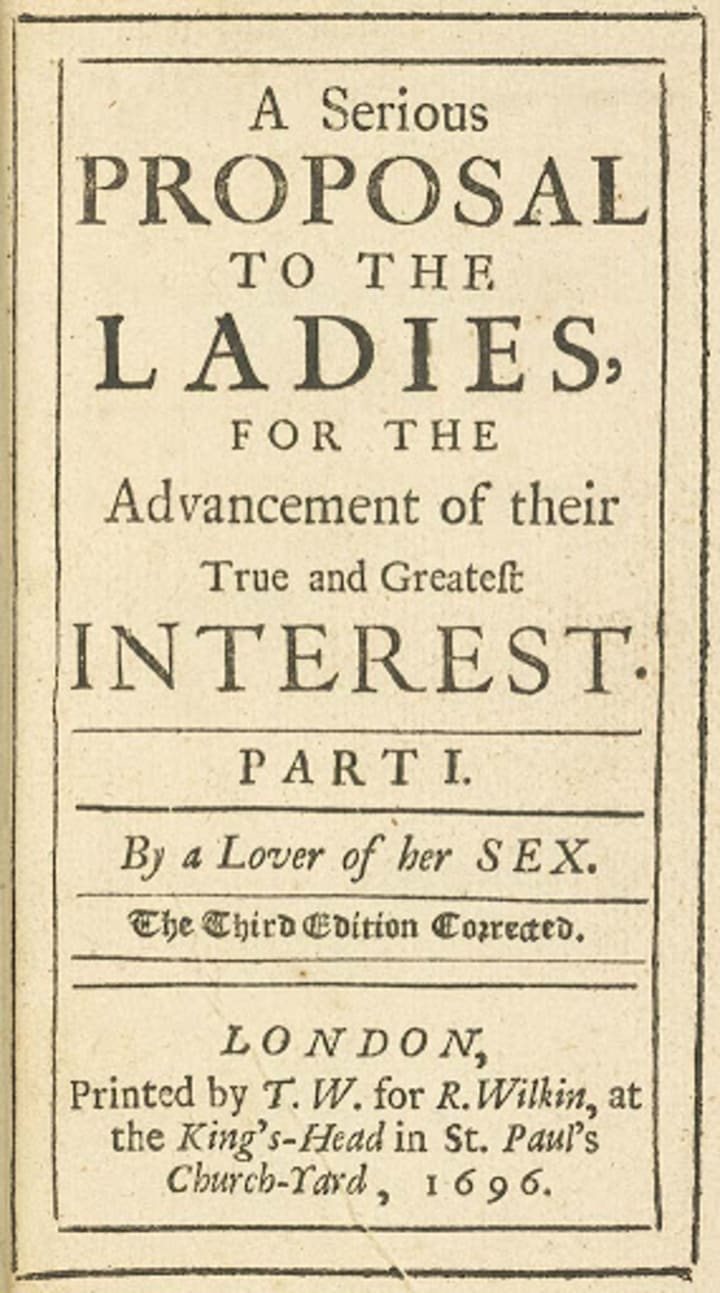
The female academics of the Age of Enlightenment were also involved in pertinent topics such as physics, and the reform of the Roman Catholic Church. One of the most notables presences in these forums, was the celebrated French philosopher, Émilie Du Châtelet. Du Châtelet was recognized for her brilliant analysis’ of Newton’s laws. Her translation and commentary on Newton’s Principia, remains the only complete French translation.
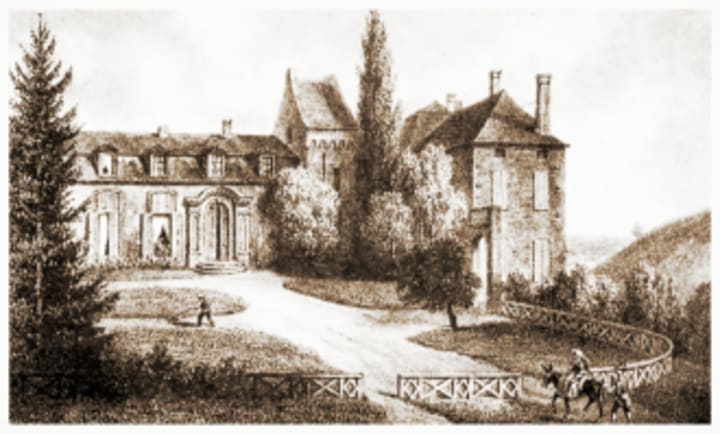
Du Châtelet kept company with the most famous academics of her time. Her chateau in Cirey became a destination for the greatest of minds. Du Châtelet was actually Voltaire’s main consult while working on his Elémens de la Philosophie de Neuton. The first published edition, depicts Du Châtelet as a muse, reflecting the knowledge of Newton, so that Voltaire may gain deeper understanding.
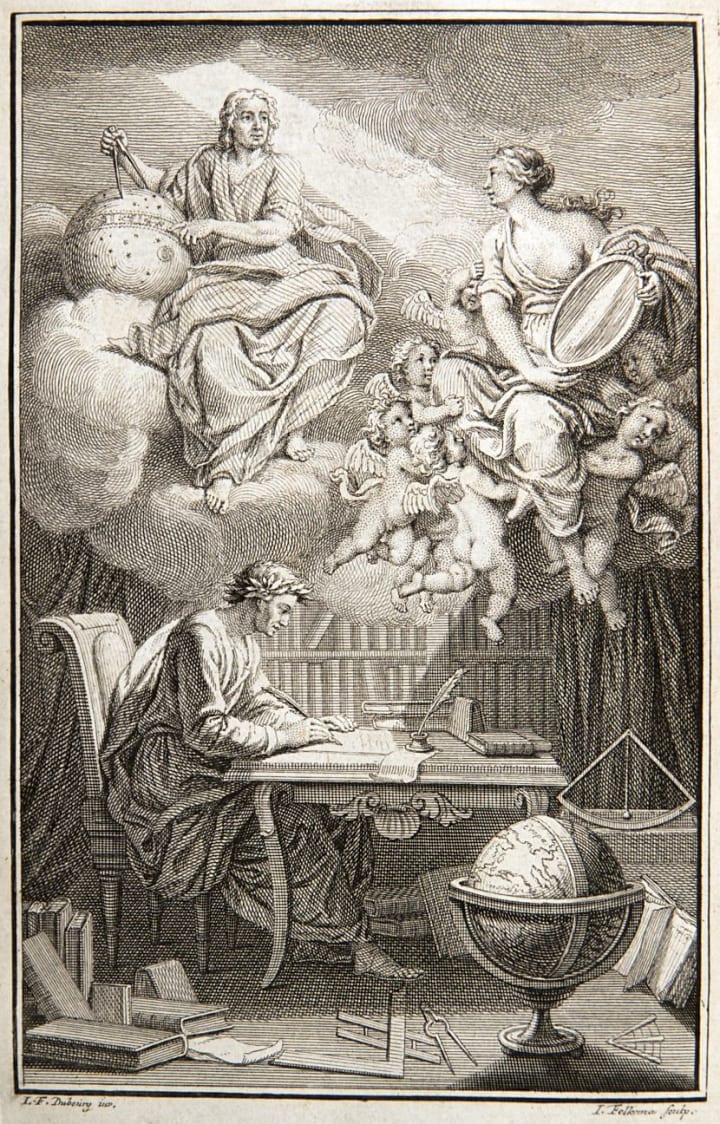
Despite the lack of tools their male counterparts were bestowed, women were essential members of the philosophical and academic revolution of Enlightenment Europe. Philosophers such as Astell, van Schurman and Du Châtelet presented valuable ideas that transformed women’s education, science and the Roman Catholic Church. Their work was key in the Enlightenment and laid the groundwork for women’s equality. These achievements should be viewed through clear eyes and with a sober mind, and with the knowledge that women are and always have been of utmost importance to our species’ advancements.
-------------------------------------------------------------------------------------
The women mentioned are just a select few who have played key roles in the scientific revolution, women's rights and the general advancement of our species. A few other notable female philosophers of the 16th-19th centuries:
Mary Wollstonecraft
Princess Elisabeth
Florence Nightingale
Mary Whiton Calkins
Anne Conway
Harriet Taylor Mill
Special thanks to Project Vox, an extraordinary research project with a plethora of information, including links to primary historical sources. I couldn't have done this piece without them!
Project Vox concerns an important, relatively recent, scholarly development in philosophy: the acknowledgement that a number of early modern women have been unjustly ignored in our narratives of the history of philosophy.
My original presentation was published here but has been reformatted slightly for Vocal. I'm thrilled to be able to share this piece as a part of Women's History Month, I hope you enjoyed learning about some of the amazing women of the philosophical world!
----------------------------------------------------------------------------------------
Thank you for taking the time to read this piece. If you enjoyed it give it a like, if you were inspired, share it below so that others may also be inspired, if you would like to support my ability to produce more articles and stories, consider leaving a tip. Any which way, your time is much appreciated, thank you for being here. :)
About the Creator
Samantha Kaszas
Experienced Storyteller. Amateur Writer.
Here to tell stories and sharpen my craft.
Thank you for stopping by.
@Samanthacarlyk

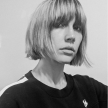





Comments
There are no comments for this story
Be the first to respond and start the conversation.